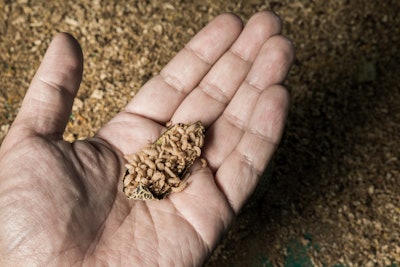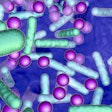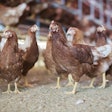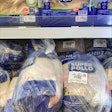
The insect larvae for poultry feed space is becoming increasingly crowded. Mineral rich larvae can not only provide a valuable ingredient for poultry diets, but they can chomp through food waste, so both poultry production and the environment benefit. What could be better?
How about nutritionally enhanced insect larvae? Their development has come under the microscope at part of a feasibility study led by scientists at the U.K.’s Nottingham Trent University, and agri-tech company Flybox. Together, they are looking at whether they can not only produce a more sustainable feed ingredient but also enhance the nutritional value of chicken meat.
The research is looking at biofortifying black soldier fly larvae with essential minerals for nutrition, such as zinc, iron, calcium and selenium.
Mite-sized focus but thinking big
As part of the project, the researchers will develop a nano-enhanced substrate with naturally occurring minerals and amino acids essential for poultry health. Elements will be combined at an atomic scale until they uniformly grow intto a nanometer size. By utilizing the minerals at this size the birds – and insects – can use and metabolize them more effectively.
The biofortified larvae will be added to grain for poultry feed and the research team will evaluate the nutritional uptake in birds. The approach could also improve the nutritional value of chicken meat for consumers, as well as enhance the health wellbeing of birds.
Demand for chicken feed is expected double by 2050, Nottingham Trent says, and, as we all know, feed comes with a carbon footprint, particularly through transport. The Nottingham researchers argue that their study should enable the adoption of an alternative, hyper-local, low emission protein solution, by lowering production costs while adding value to feed for poultry and other livestock.
According to Dr. Gareth Cave, a Nottingham researcher, current supplements are expensive, in short supply, and not environmentally sustainable. The project would circumvent having to use them.
















